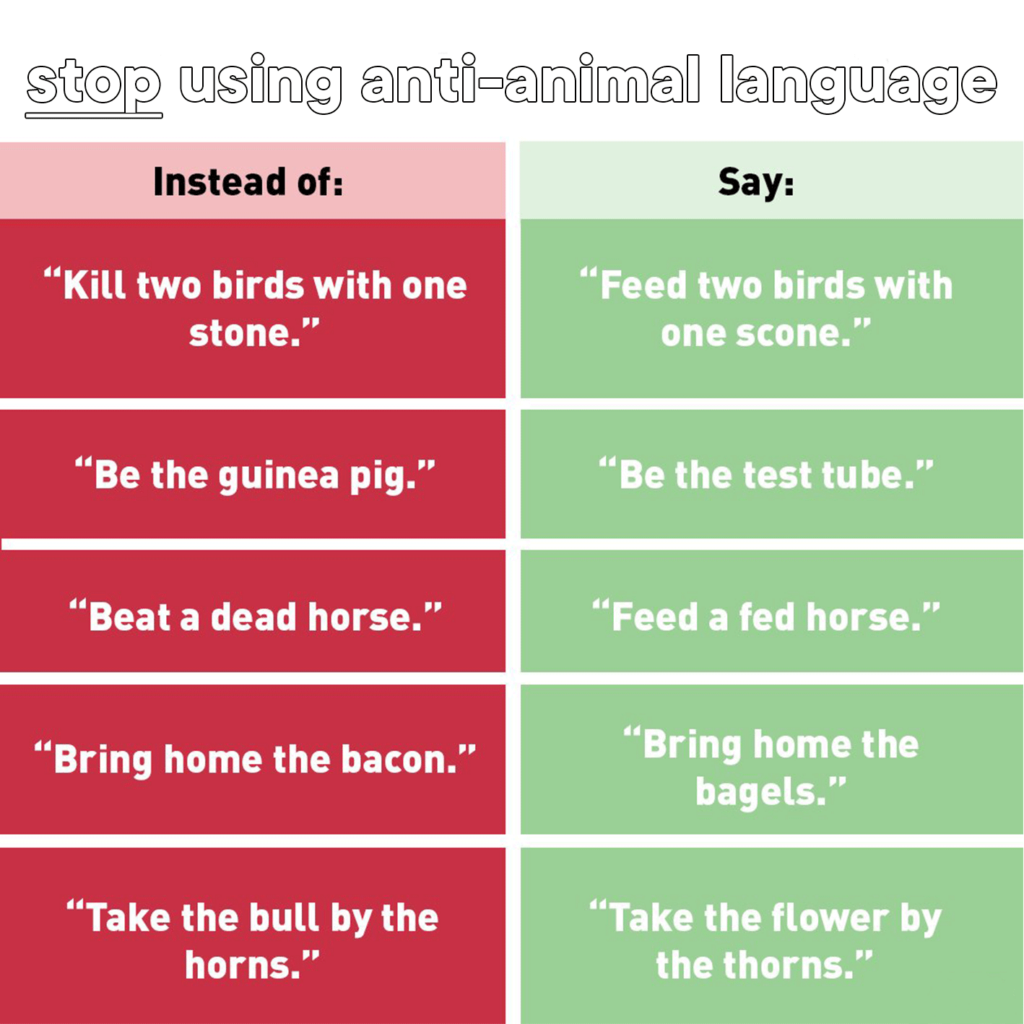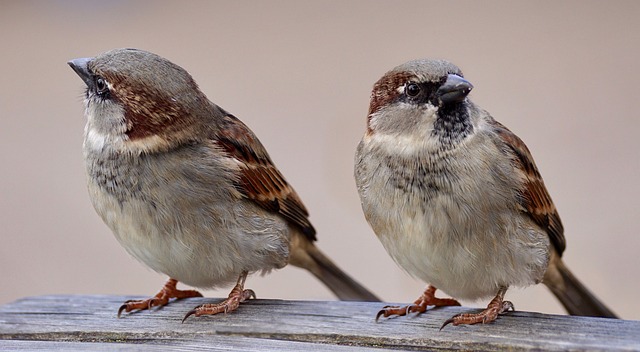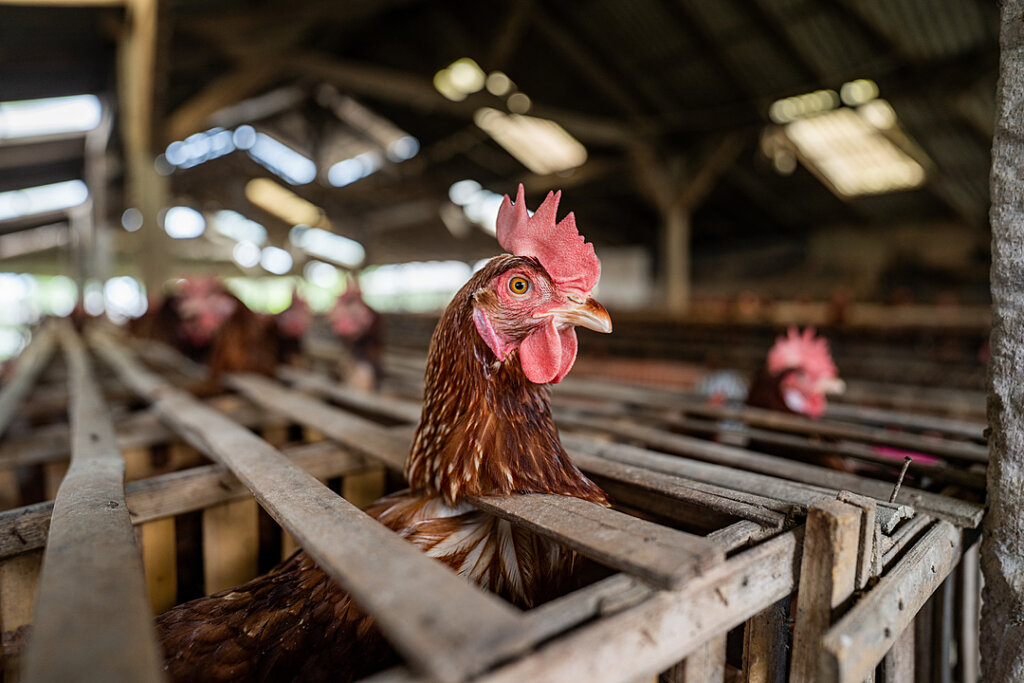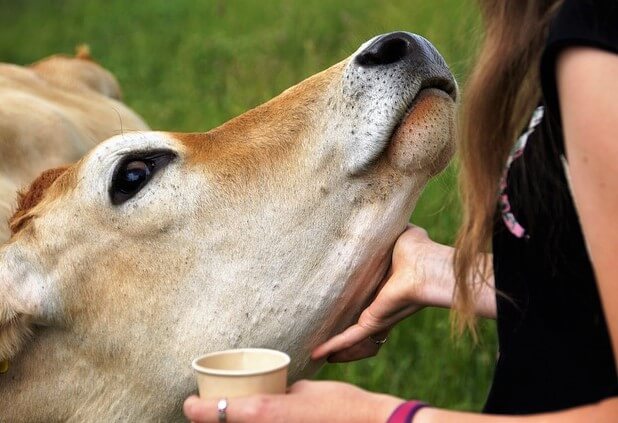It’s Time to Stop Using Speciesist Language
We’re asking people to swap out speciesist language for more inclusive, animal-friendly forms of expression.
Let’s be clear: Asking people to choose their words carefully isn’t about not hurting animals’ feelings—it’s about shaping a culture that doesn’t tolerate animal abuse. Taking the simple step of avoiding anti-animal language isn’t a radical idea. It helps us all be more conscious of the way we view animals.
In this BuzzFeed article, Summer Anne Burton does a great job of explaining why some people are quick to dismiss our suggestion: “Most of you know that what we do to animals to achieve cheap meat at massive scale is wrong, but then you eat the meat anyway. Maybe this is why it’s so appealing to draw attention to vegans and animal activists who seem kooky, annoying, and tone-deaf—it’s a way of changing the subject and of keeping away the creeping feeling that you just might be on the wrong side of history.”
Our society has worked hard to eliminate racist, homophobic, and ableist language as well as the prejudices that usually accompany it, and now it’s time to address the speciesist language that still runs rampant. (Speciesism is discrimination based on species. It involves viewing members of one species as more important than members of others.) Although PETA has long argued for an end to anti-animal language—we’ve been “bringing home the bagels” since 1980, after all—this issue is in the news now because Shareena Z. Hamzah-Osbourne, a postdoctoral researcher at Swansea University, wrote a blog post for The Conversation suggesting that the growing number of vegans will lead to the disappearance of some “meaty” expressions from common usage. This is because as human culture evolves, so does our language.
[need image from HH]
If you think we’re making a mountain out of a molehill, remember that words matter and that the language we use can have profound repercussions. Speciesism is dangerous. Just as racism and sexism allow the continuation of harmful practices toward humans in our society, speciesism keeps the industries that abuse and kill animals in place.
Using clichés and phrases that trivialize cruelty to animals, such as “There’s more than one way to skin a cat,” or making animals the target of our derogatory language desensitizes us and paves the way for the normalization of violence against animals. Most of us would never support dogfighting, but we still use the phrase “have a dog in that fight.” And hopefully, we would never “beat a dead horse” (or a live one), but our language suggests otherwise. More and more social justice activists are including animal rights in the conversation, because all social justice movements are centered on campaigning for the rights of those whose voices have not been heard. Billions of cows, pigs, chickens, and other animals every year are condemned to a lifetime of torture and violence at human hands, and many people don’t even give them a second thought.
Animals are sensitive, intelligent individuals capable of experiencing joy and suffering. They don’t exist to be exploited or killed for hot dogs, wool sweaters, or amusement park attractions. Our language must change to reflect this. And there’s another reason why it’s time for a language revolution: because we’re all in this together. Prejudices arise when we start to believe that “I” am important and “you” are not—and that “my” interests somehow outweigh those of “others.”
Everyone—regardless of race, gender, ethnicity, social class, or species—deserves a life free from harm, and watching our words can help make this possible. Cringeworthy words and phrases don’t belong in modern society. It’s time to get with the program. Our understanding has evolved, and our language should evolve with it.
Text peta2 to 30933 for ways to help animals, tips on compassionate living, and more!

Terms for automated texts/calls from peta2: http://peta.vg/txt. Text STOP to end, HELP for more info. Msg/data rates may apply. U.S. only.








